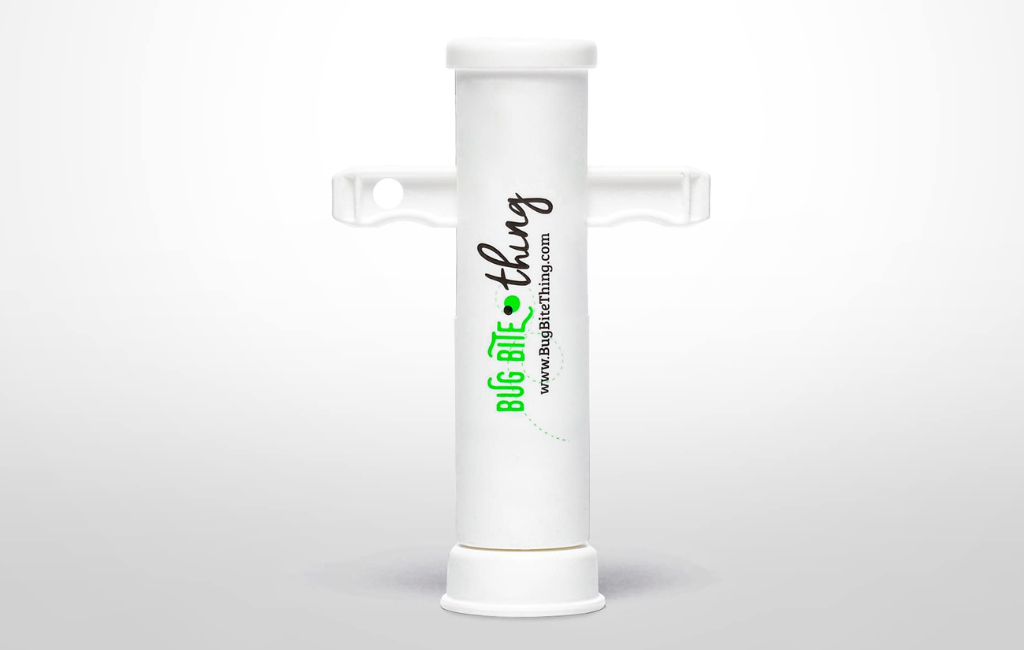Squid Socks – Baby Socks
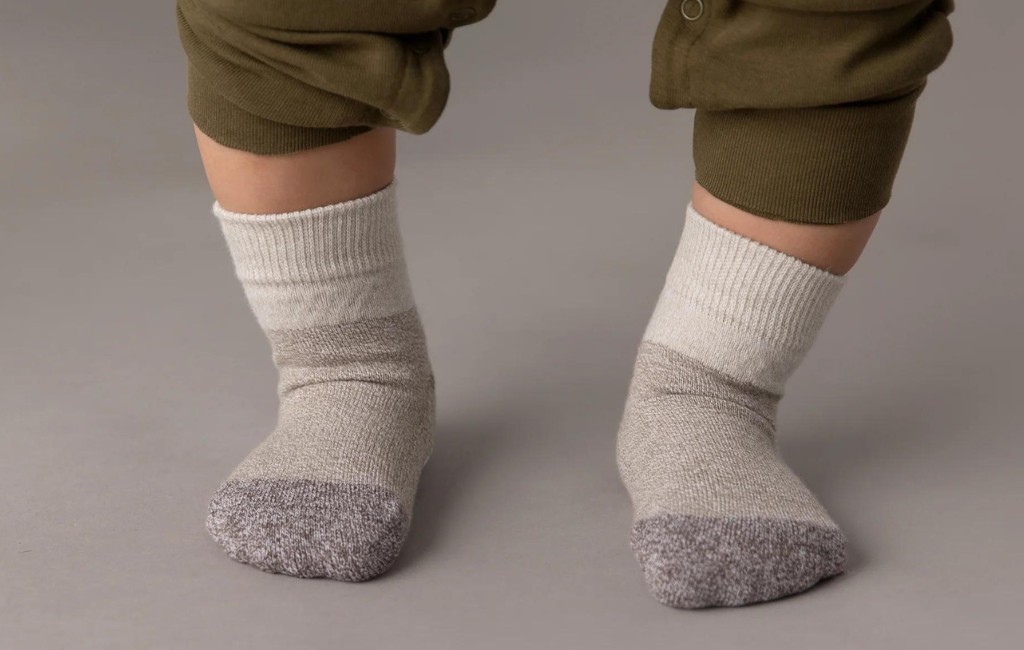

DEAL
EPISODE SUMMARY
🕓 Air Date: October 13, 2019
Asking For:
$125,000 for 20%
Investor:
Daymond John
Deal:
$125,000 for 33%
PRODUCT SUMMARY
Squid Socks reinvents baby socks with squiddy dots inside the cuff to prevent them from being pulled off, making the daily sock battle for parents a thing of the past.
WATCH HERE
IN A RUSH?
Click these to jump to the section you want to read.
Background Story
Jessica and Gabe, the founders of Squid Socks, identified a common parenting challenge during their honeymoon when Gabe’s cousin struggled with keeping baby socks on his son. Inspired by this real-life problem, the couple conceptualized Squid Socks, aiming to create a solution to the age-old issue of babies constantly pulling off their socks.
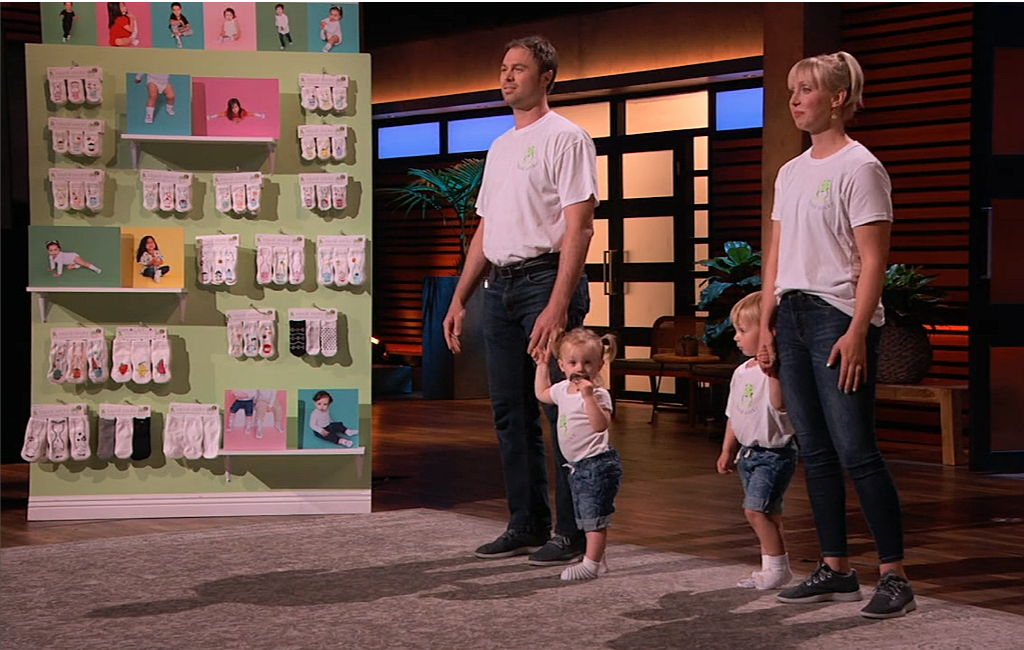
This lightbulb moment on their honeymoon sparked their entrepreneurial journey, leading to the development of Squid Socks. With a utility patent pending on the squiddy dots inside the cuff, the founders have combined ingenuity and practicality to create a unique product in the baby apparel market.
The Product
Squid Socks introduces an innovative approach to baby socks by incorporating squiddy dots inside the cuff. These dots serve as anchors, preventing the socks from being easily pulled off by active babies and toddlers.
The product addresses a common parenting pain point, offering a practical solution for keeping baby socks in place during various activities, whether at home, in the car seat, or at daycare. The squiddy dots, while effective in securing the socks, maintain a comfortable fit for the child.
Squid Socks are designed to cater to the daily struggles parents face in keeping their little ones’ socks on. The product’s effectiveness is demonstrated through a pull test, showcasing the stark difference between Squid Socks and traditional baby socks.
The company aims to make the daily sock battle a thing of the past, providing parents and caregivers with a convenient and reliable solution. Launched on their website, Squid Socks are retailed for $24 and wholesaled for $12, with a production cost of $5.85 for a three-pack.
With a focus on the unique selling proposition of squiddy dots, Squid Socks aims to differentiate itself in the competitive baby apparel market.
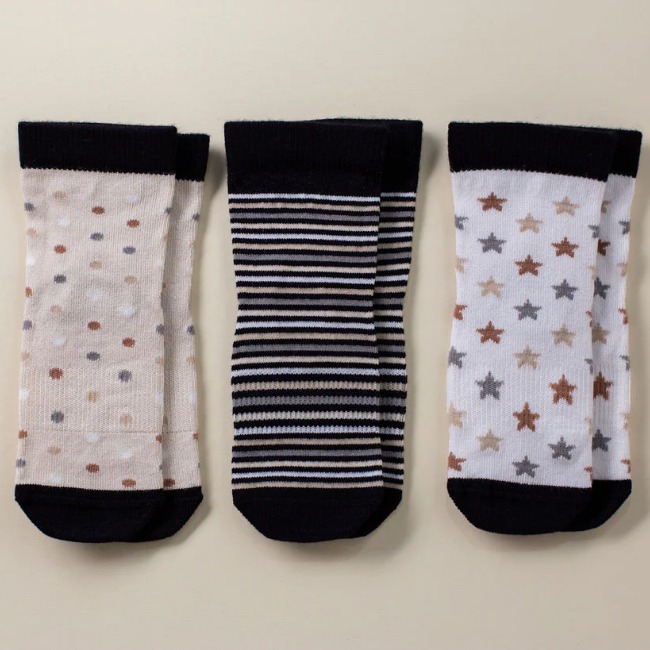
How It Went
The company’s position before Shark Tank
Squid Socks has been in business for 16 months, experiencing both successes and challenges. With $40,000 in sales, the company faced significant production issues that led to inventory shortages. Despite these setbacks, Squid Socks expanded its product line from two sizes to four and increased collections from three to 18 within seven months. The founders attribute their success in overcoming challenges to their resilience and quick adaptation.

The company launched its product on its website, selling approximately $20,000 worth of inventory. However, inventory shortages and quality issues with the second batch hampered their growth. Squid Socks secured a utility patent pending on the squiddy dots inside the cuff and holds trademarks. The founders expressed openness to exploring partnerships with domestic players in the sock industry, emphasizing the need for rapid market expansion.
The valuation and equity offering of $125,000 for 20% positioned Squid Socks as an attractive investment opportunity on Shark Tank. The founders disclosed their plan to use the investment to further their marketing efforts, expand their reach, and address the production challenges.
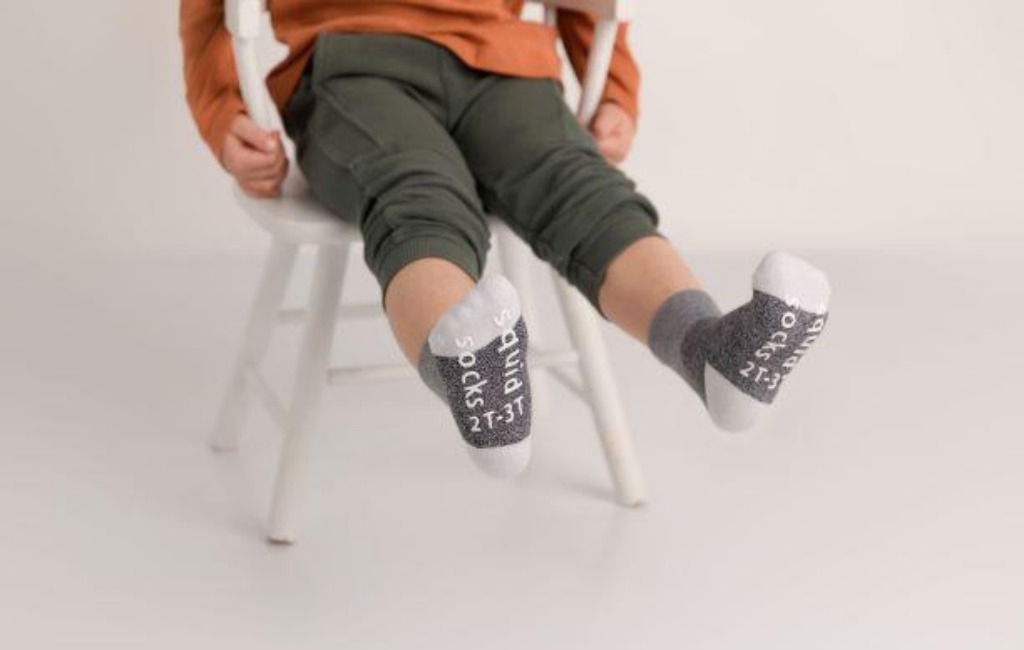
The Negotiations:
The Squid Socks founders initially sought $125,000 for 20%, presenting their case on the daily struggle parents face in keeping baby socks on. The pull test demonstration showcased the effectiveness of Squid Socks, garnering interest from the Sharks. Mark Cuban and Kevin O’Leary opted out early, citing concerns about entering the competitive sock industry.
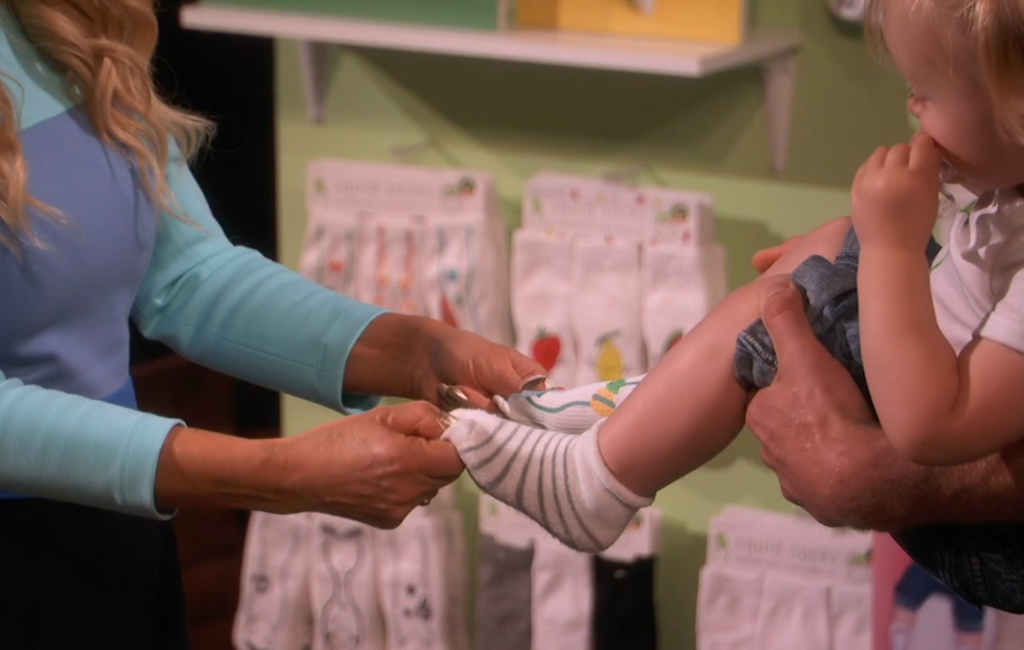
The negotiation dynamics shifted as Robert Herjavec and Daymond John made offers. Herjavec offered $125,000 for 40%, emphasizing the need for a licensing deal with larger players in the industry. Herjavec countered $125,000 for 30%, highlighting the challenges of the sock business but expressing his interest. Daymond John entered the negotiation with a strategic offer, matching Robert’s $125,000 for 33%. The founders appreciated Daymond’s industry expertise and opted for a deal with him.

Lori Greiner, impressed with Daymond’s approach, expressed her willingness to join the deal with Daymond, but Daymond declined the offer. The negotiation showcased the founders’ commitment and resilience, attracting multiple offers and resulting in a successful partnership with Daymond John.







